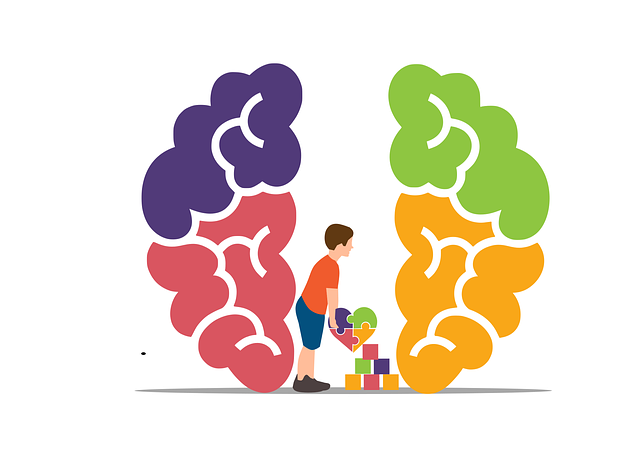In today's digital era, where mental health challenges like alcohol abuse are prevalent in communities like Northglenn, advocacy is key. By fostering open conversations and reducing stigma through initiatives like Northglenn Alcohol Abuse Therapy (NAAT), we create an environment encouraging early intervention and self-awareness exercises. NAAT combines individual therapy with group meetings to empower individuals, reduce stigma, and prevent depression while combating alcoholism. Effective mental health advocacy requires collaboration between various sectors—including centers, organizations, governments, schools, and workplaces—integrating wellness coaching into daily life. Cultural sensitivity is crucial for inclusive services that resonate with diverse communities, alongside public education, stigma challenge, and policy advocacy.
Mental health advocacy initiatives play a crucial role in fostering community well-being. This article explores the pressing need for such efforts, using Northglenn Alcohol Abuse Therapy as a compelling case study. We delve into how community outreach programs, like those offered by Northglenn, effectively combat mental health challenges. Furthermore, we provide practical strategies for organizations aiming to advocate for better mental health services. By understanding these approaches, we can collectively revolutionize mental healthcare accessibility.
- Understanding the Need for Mental Health Advocacy
- Northglenn Alcohol Abuse Therapy: A Case Study in Community Outreach
- Strategies for Effective Mental Health Advocacy Initiatives
Understanding the Need for Mental Health Advocacy

In today’s fast-paced world, mental health advocacy is more critical than ever before, especially in communities like Northglenn where issues such as alcohol abuse and burnout prevention are prevalent. Understanding the intricate web of challenges faced by individuals struggling with anxiety relief and other psychological barriers requires a collective effort to raise awareness and reduce stigma. By fostering open conversations about mental well-being, we can create an environment that encourages self-awareness exercises and promotes early intervention for those in need.
The importance of advocacy lies not only in providing support but also in shaping policies that prioritize mental health services, ensuring accessibility to treatments like Northglenn Alcohol Abuse Therapy. Through dedicated initiatives, communities can empower individuals to take control of their mental health, offering them the tools and resources needed to navigate life’s challenges with resilience and self-care practices that extend beyond mere coping mechanisms.
Northglenn Alcohol Abuse Therapy: A Case Study in Community Outreach

In Northglenn, a small city grappling with alcohol abuse issues, a dedicated team came together to address the problem through Northglenn Alcohol Abuse Therapy (NAAT). This community-driven initiative focused on providing accessible and tailored support for individuals struggling with alcoholism. NAAT implemented innovative empathy building strategies to foster understanding and reduce stigma, ensuring those affected felt seen and heard. By combining individual therapy sessions with group support meetings, the program created a safe space for participants to learn effective coping skills development.
Through its holistic approach, NAAT not only aimed to prevent depression but also empower individuals with the tools needed to overcome addiction. The success of this case study highlights the power of community outreach in mental health advocacy, demonstrating that tailored interventions can significantly improve lives and create lasting change.
Strategies for Effective Mental Health Advocacy Initiatives

Mental health advocacy initiatives require a multi-faceted approach to be truly effective. Firstly, Northglenn Alcohol Abuse Therapy centers and community organizations should collaborate closely with local governments, schools, and workplaces to integrate mental wellness coaching programs into existing structures. This ensures that support is readily accessible and normalized within various facets of daily life. By promoting emotional well-being through tailored techniques, these initiatives can empower individuals to take charge of their mental health proactively.
Additionally, incorporating cultural sensitivity in mental healthcare practice is paramount. Understanding and respecting diverse cultural beliefs and practices enables advocates to offer more inclusive services that resonate with different communities. This approach not only enhances the effectiveness of advocacy but also fosters trust and encourages a broader range of people to seek help when needed. Effective advocacy also involves educating the public about mental health issues, challenging stigma, and advocating for policies that prioritize emotional well-being on both individual and societal levels.
Mental health advocacy initiatives, as exemplified by Northglenn Alcohol Abuse Therapy, play a pivotal role in fostering community well-being. By implementing effective strategies that engage and empower individuals, these programs can significantly reduce stigma, improve access to care, and enhance the overall mental health landscape. Understanding the unique needs of diverse communities is essential for tailoring advocacy efforts that resonate deeply and lead to lasting positive change.














